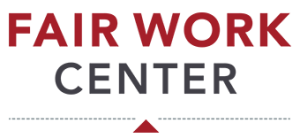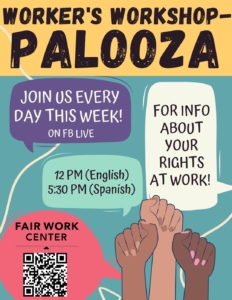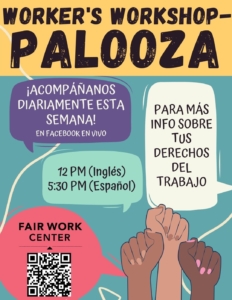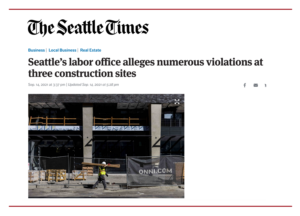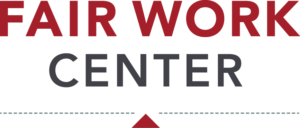
Efraín worked as a cook for a sports bar and grill in Seattle. He was regularly required to work overtime hours, didn’t get any breaks, and was only paid for a flat 40 hours each week—no matter how many additional hours he actually worked. And when he tried to take a paid sick day, his employer fired him.
He got in touch with our legal clinic and we took the case. Now, Efraín is getting $72,000 in a settlement — more than a year’s worth of pay.
Here’s Efraín’s story, translated from Spanish:
(Haga clic aquí para leer la versión original en español)
“After they hired me, I worked hard for six months while earning the minimum wage they offered me. Six months in, my manager called me in to talk. I brought my coworker to help translate to English, because our manager only spoke English, and didn’t speak a word of Spanish. My boss told me that I was doing really well and offered me more responsibility in the kitchen. And with that, he offered me a salary of $1000 a week to work Monday through Sunday—I’d have to be there seven days a week.
From then on, I had to work at least 55 hours a week, sometimes up to 60 hours—all for $1,000 a week. They weren’t paying me anything more for all those extra hours. So they already owed me a ton of money. Still, I needed the job.
It was so stressful working six or seven days a week. I’d leave work to head home at 1:30am. Later, it became 2:30am. I couldn’t take breaks at work or days off. I was only sleeping about 4 or 5 hours a night.
I felt terrible. Before, this job was already so demanding—and now it was even more work. Our boss didn’t care about the effort we were putting in or about how little he was paying us. He didn’t care at all. Every year, the owner hosted a party to celebrate the staff, but they never invited those of us who worked in the back, in the kitchen. All of that stuff, the pay and the exclusion and everything, it felt like a total lack of respect.
One day, very early in my shift, I told my boss that I’d slept really poorly and needed to go to the dentist to deal with some bad tooth pain I was having. I’d never missed work, but today I just couldn’t do it. He told me it was okay to leave and go to the dentist—so I did. But maybe two hours later, he called to tell me I was fired.
I was so angry and frustrated. I thought about all the work I did there, about how none of it mattered to them, they didn’t value any of it. It’s still very, very frustrating to think about.
I’d heard about Fair Work Center about five years ago, during an English class I was taking at the time. I remember our teacher telling us that it was a place to go if our rights were being disrespected. So I got in touch with the lawyers at Fair Work Center, and after talking they decided to help me fight my case.
I just want other workers to know about what rights we have. Sometimes, as undocumented people, we don’t know where to turn or who to take our questions to when our rights are being violated. In the past, I haven’t said anything, I’ve stayed quiet because I’ve been afraid of bad consequences and all that—I’ve never said ‘let’s fight back, let’s take them to court, let’s do it.’
But with this situation, I knew I’d been wronged—and I knew I needed to enforce my rights. And that’s what we did.”
Are your rights at work being violated? Need help?
Call us at 844-485-1195, email help@fairworkcenter.org, or fill out this form.
